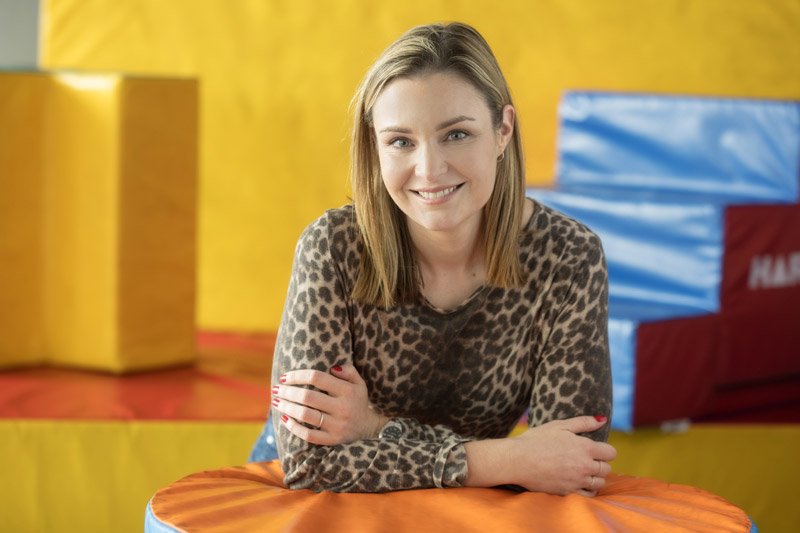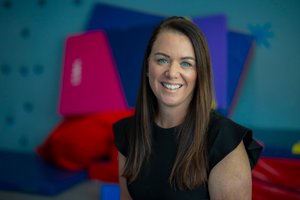Auditory Processing Disorder
APD affects the way the ears and brain work together to understand sound. Audiologists are the only health professionals qualified to diagnose this disorder
What is Auditory Processing Disorder?
APD affects the way the ears and brain work together to understand sound. Children with APD have normal peripheral hearing, but difficulty recognising and interpreting the sounds they hear.
These difficulties make it hard for children to work out what a sound is, where the sound came from and when the sound happened. And this means it’s hard for children to listen properly when there’s background noise or the sound is muffled.
APD can look like a hearing loss, an intellectual disorder, a language problem, a learning difficulty or attention deficit hyperactivity disorder and although it isn’t any of these disorders it can co-exist with them. APD is sometimes referred to as central auditory processing disorder (CAPD) however APD is the currently accepted term and refers to the same diagnosis. APD is known to affect around 3-5% of school-age children.
Audiologists are the only professionals qualified to diagnose APD. Audiologists diagnosing APD should have been educated and trained in the area of APD, including the administration and interpretation of APD tests. Throughout assessment a child should be observed for the presence of undiagnosed additional difficulties that may manifest difficulties similar to APD; in addition to APD; or impede a differential diagnosis.
What are the difficulties associated with APD?
Some of the difficulties associated with APD are:
Difficulty following multiple or lengthy oral instructions
Difficulty understanding speech in competition, for example, in the presence of background noise
Difficulty hearing when a signal is not clear or is ‘degraded’ (for example, soft, quick or distorted speech, different accents, phone conversation)
Mishearing auditory information
Slowness in processing and responding to auditory information
Inconsistent or inappropriate responses to spoken requests for information
Frequent requests for repetition and/or rephrasing of information, saying “what” or “huh” often
Listening fatigue
Difficulty or inability to interpret speech cues that underlie emotion, humour and shades of meaning in speech
Difficulty maintaining attention, poor listening skills, easily distracted
Poor auditory memory
Reduced tolerance for noise and sensitivity to noise
Secondary difficulties associated with APD may include:
Academic difficulties, including reading, spelling and/or learning problems
Social difficulties
Exhaustion after school from listening effort
Our Assessment Process
An Adelaide Paediatrics APD assessment will take approximately 2 hours to complete and is normally completed over 2 sessions. The first appointment will include a fully Diagnostic Hearing assessment and the second appointment will include the results and recommendations. The assessment is delivered in a fun and engaging way for the comfort of your child. Our Audiologists specialise in the diagnosis of APD to ensure the best outcomes for your child.
If you are concerned that your child may have APD please contact us for a full comprehensive assessment for APD.
Meet Consulting Audiologists
-
Staff Audiologist
Qualifications: B.Com, Dip. Lang, MAud, CCP
Chloe has been an Audiologist for almost 9 years. She gained her Master of Audiology from Flinders University, achieving the Academic Prize in Audiology.
Chloe was inspired to pursue Audiology during a trip to East Timor with a colleague who was providing hearing services to local communities. Her clinical experience includes working with children and adults in rehabilitative and diagnostic audiology including paediatric hearing and auditory processing disorder assessment, adult hearing and vestibular diagnostic assessment and adult hearing aid rehabilitation.
She has also participated in clinical supervision of university students during their clinical placements to facilitate positive learning experiences.
Chloe joins Adelaide Paediatrics with a passion for supporting children to achieve optimal health and wellbeing, providing hearing and Auditory Processing disorder assessments.
Make an appointment:
Adelaide Paediatrics Mile End
71 Henley Beach Road
Mile End SA 5031
T: 08 7123 6147Adelaide Paediatrics Morphett Vale
221-223 Main South Road
Morphett Vale SA 5162
T: 08 7123 6163 -
Staff Audiologist & Speech Pathologist
Sharon completed her honours degree in Audiology at The University of Wales, Swansea and her master’s degree in Speech Pathology at Flinders University of South Australia. Subsequent training also led to gaining certification as a Listening and Spoken Language Specialist in Auditory Verbal Therapy.
Sharon’s passion for all things related to hearing and communication was sparked from a long-standing family history of congenital deafness that also includes 2 out of her 3 sons.
Sharon has over 20 years’ experience in the hearing field and is very passionate about the early identification of hearing loss, middle ear issues, and Auditory Processing Disorder (APD). Sharon has worked in Adelaide at the Women’s and Children’s Hospital, Flinders Medical Centre, and within Private practice.
Sharon’s has significant experience in all paediatric hearing assessment and can identify if anything is impeding your child’s ear health, their ability to hear sounds, or ability to process speech.
Helping children and families with: assessment of outer and middle ear health (from birth), cochlear function testing (from birth), full diagnostic hearing assessment (from 6 months), diagnosis of Auditory Processing Disorder (from 7 years), recommendation and fitting of listening devices for children, recommendation and installation of Soundfield Systems for classrooms, and recommendations for support following diagnosis of hearing loss or APD.
Make an appointment:
Adelaide Paediatrics Mile End
71 Henley Beach Road
Mile End SA 5031
T: 08 7123 6147Adelaide Paediatrics Morphett Vale
221-223 Main South Road
Morphett Vale SA 5162
T: 08 7123 6163
Make a booking
Independent Medical Specialists consulting in private practice at Adelaide Paediatrics triage incoming referrals and aim to accommodate urgent referrals as soon as possible, offering the earliest available appointment with a paediatrician
-
Adelaide Paediatrics Ashford
Suite 28, Level 3 Ashford Specialist Centre
57-59 Anzac Highway
Ashford SA 5035T: 08 7123 6171
F: 08 7123 0821 -
Adelaide Paediatrics Bedford Park
Mark Oliphant Building
8/5 Laffer Drive
Bedford Park
SA 5042T: 08 7123 6149
F: 08 7123 0821 -
Adelaide Paediatrics Kensington Park
360 Magill Road
Kensington Park
SA 5068T: 08 7123 6176
F: 08 7123 0821 -
Adelaide Paediatrics Mile End
SuperGym Therapy & Rehab Centre
71 Henley Beach Road
Mile End SA 5031T: 08 7123 6147
F: 08 7123 0821 -
Adelaide Paediatrics Morphett Vale
221-223 Main South Road
Morphett Vale SA 5162T: 08 7123 6163
F: 08 7123 0821 -
Adelaide Paediatrics Mount Barker
2/50 Victoria Road
Mount Barker SA 5251T: 08 7123 6175
F: 08 7123 0821 -
Adelaide Paediatrics North Adelaide
Calvary Hospital
89 Strangways Terrace
North Adelaide SA 5006T: 08 7123 6173
F: 08 7123 0821 -
Adelaide Paediatrics Wayville
The Terraces
4-6 Goodwood Road
Wayville SA 5034T: 08 7123 6177
F: 08 7123 0821





